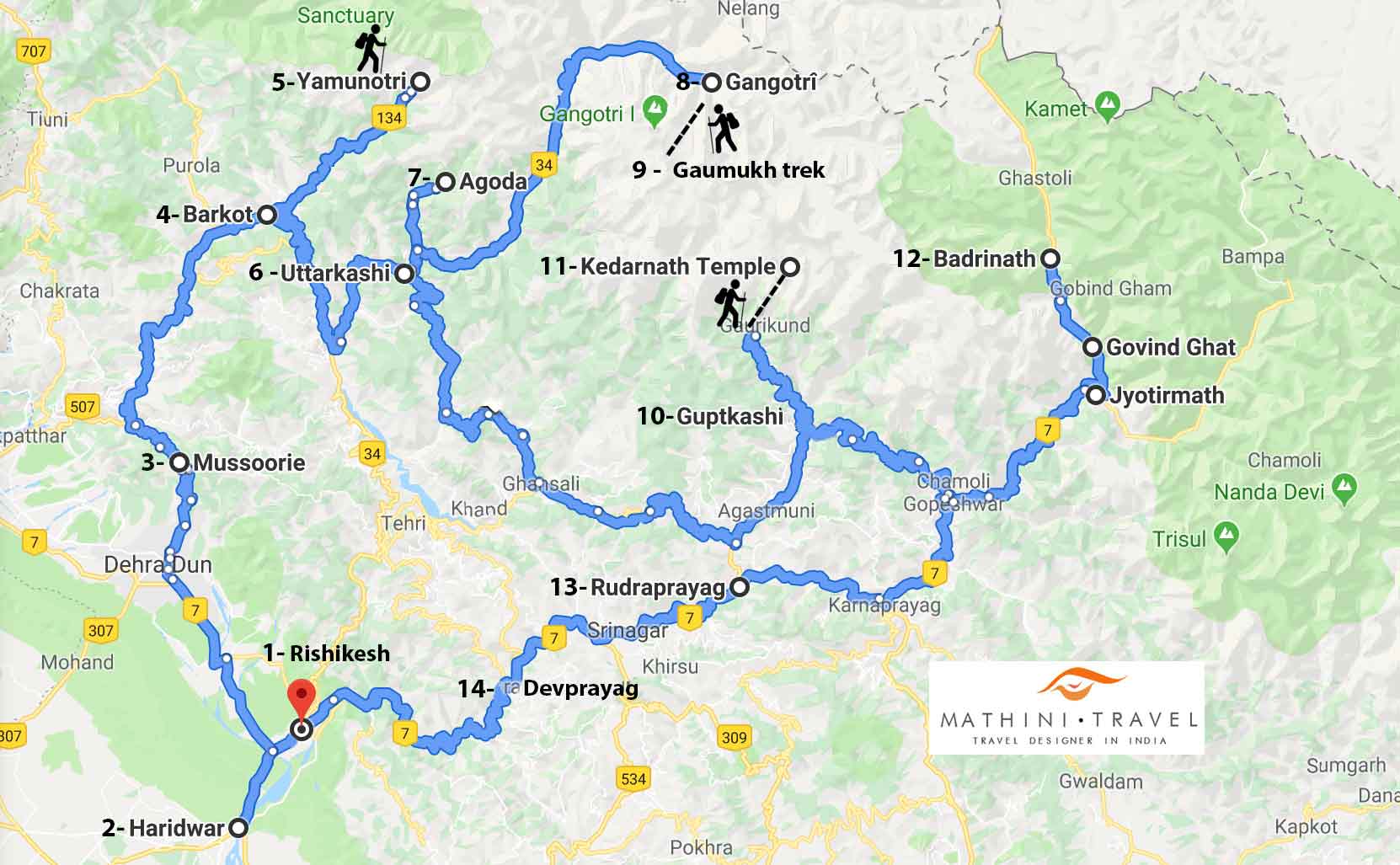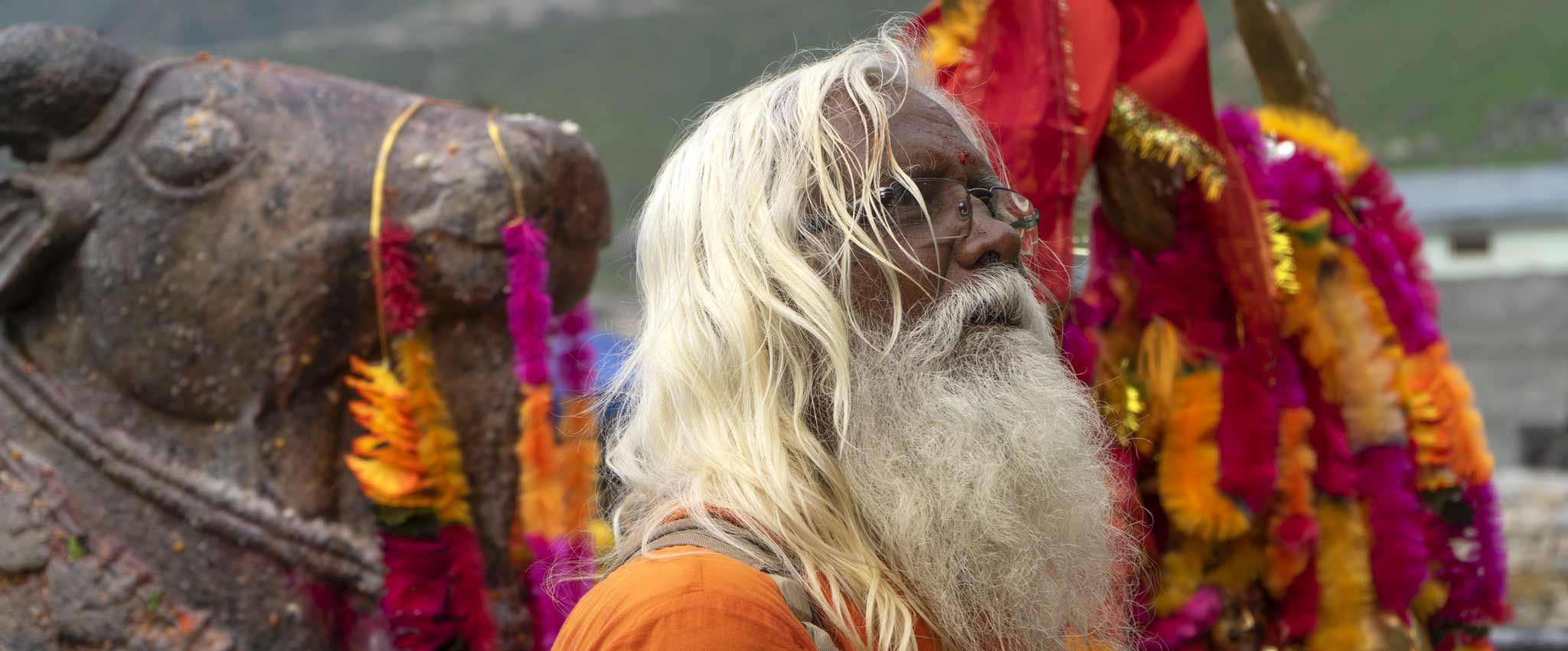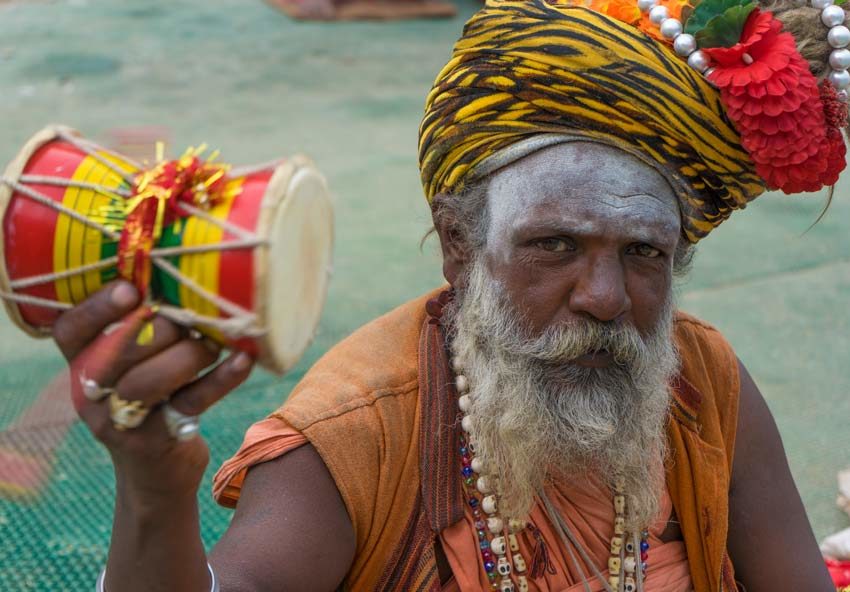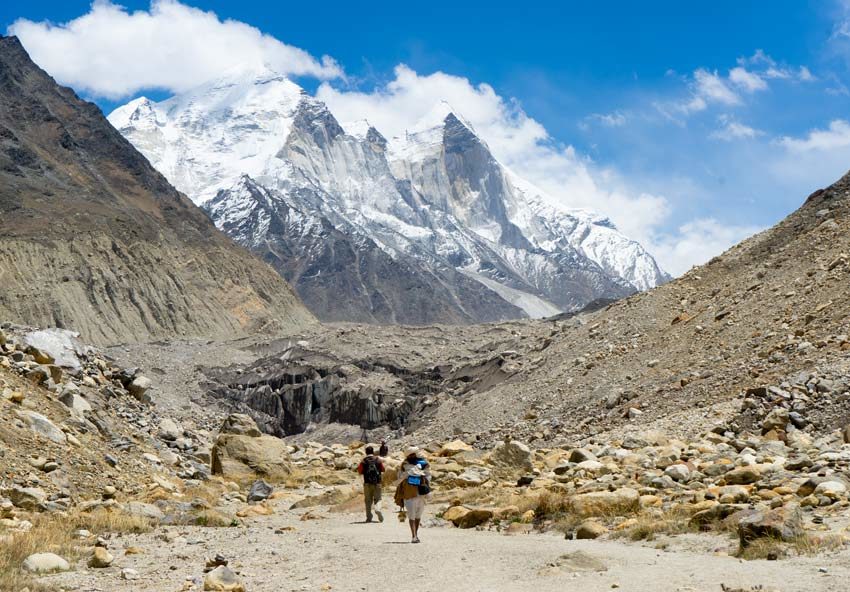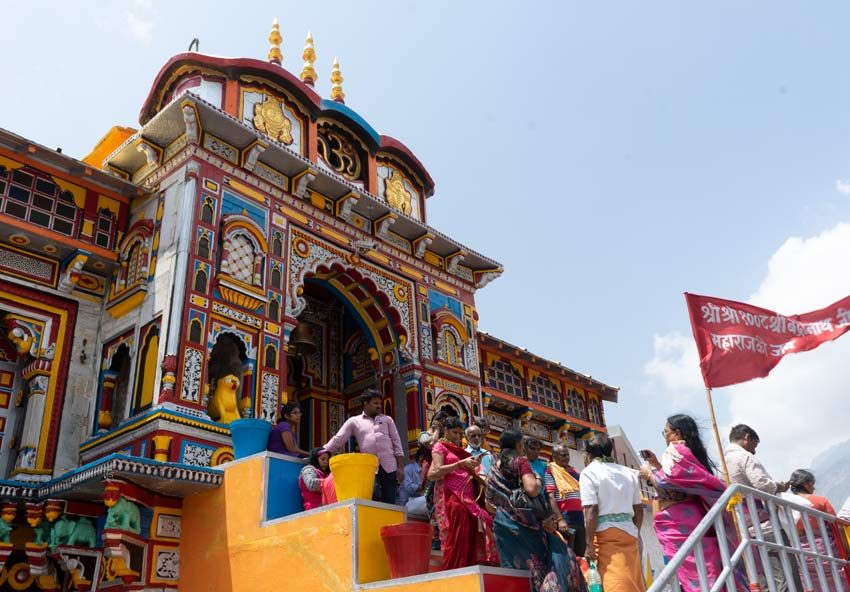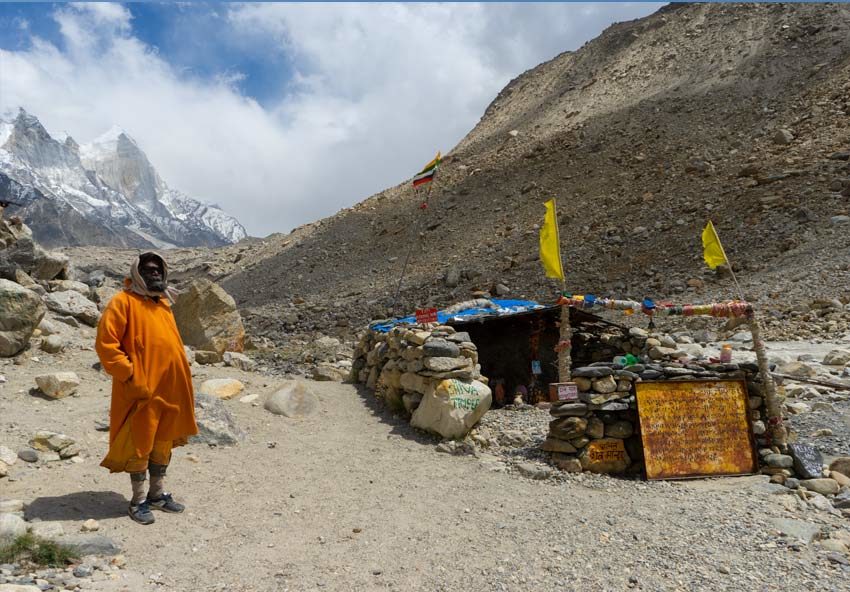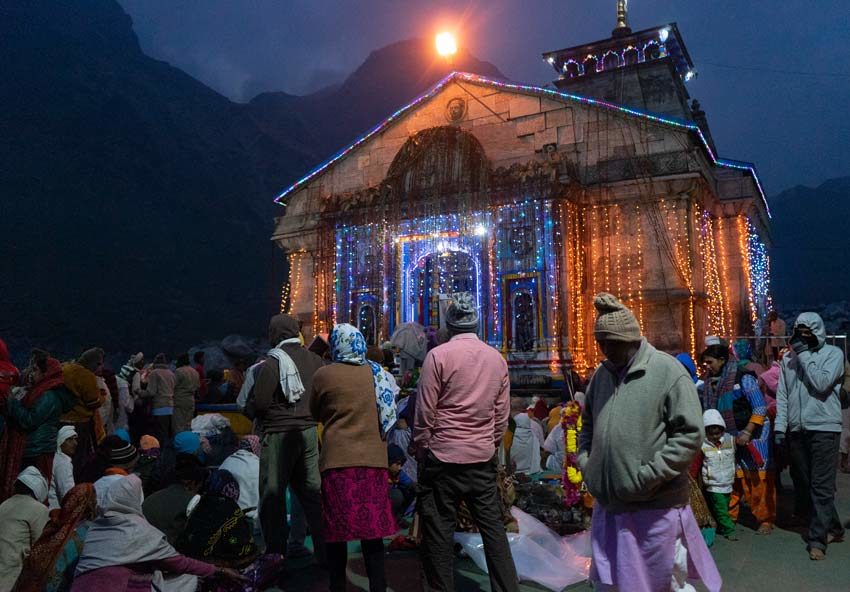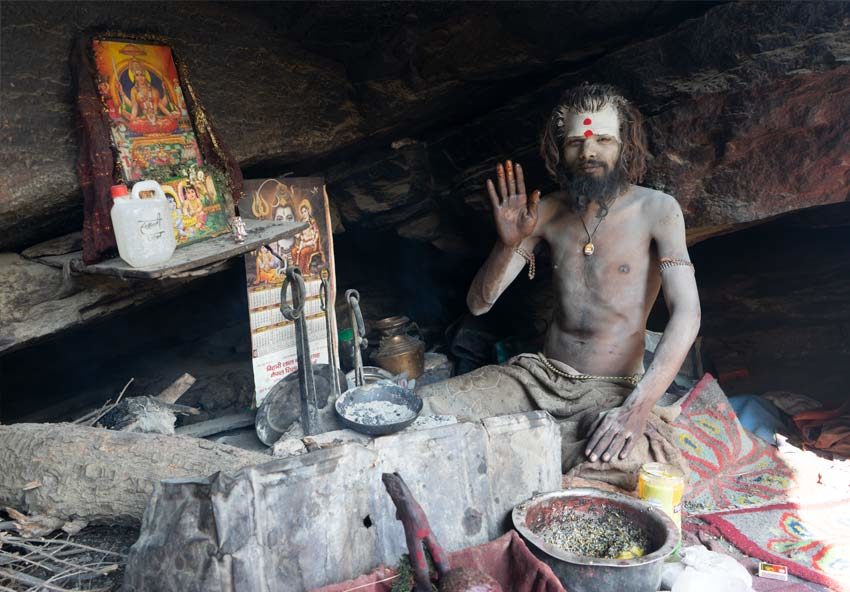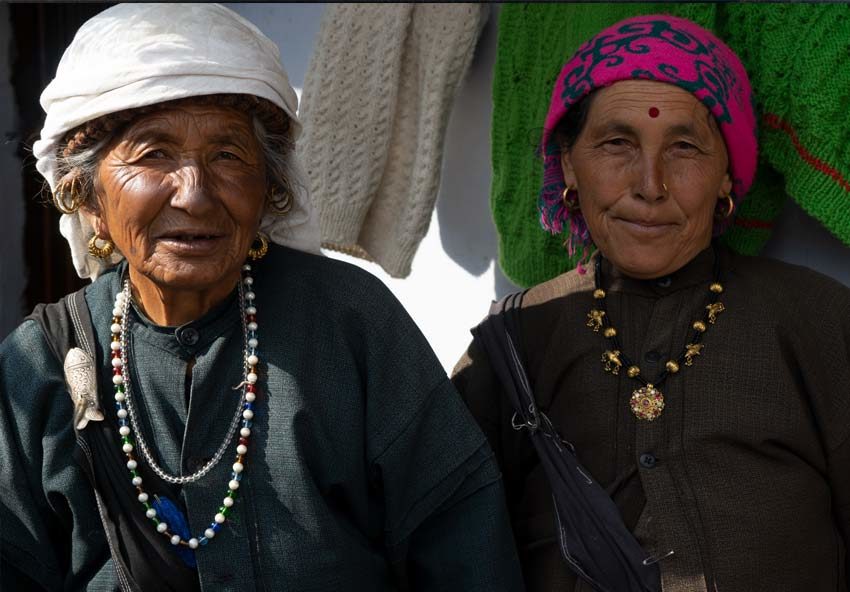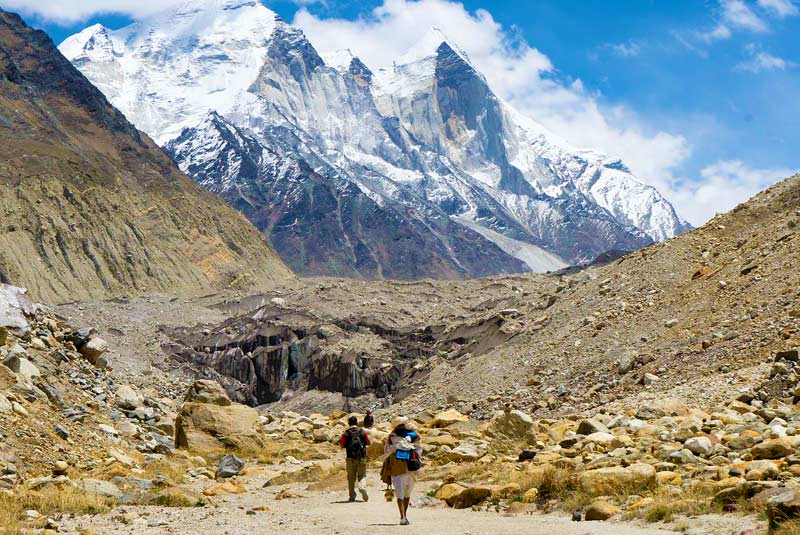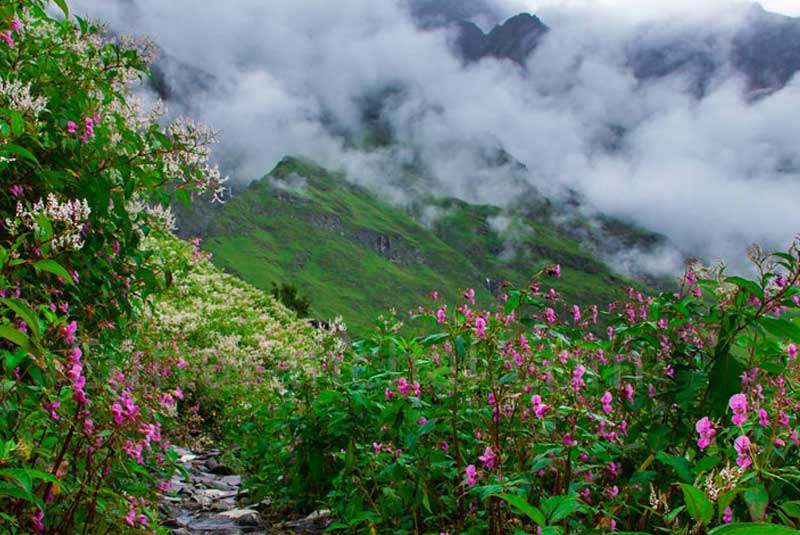Namaste! We welcome you warmly in Delhi Airport and we head directly to Rishikesh. Overnight in Rishikesh.
Day 2
Rishikesh, the city of the Rishis
This day will be dedicated to the visit of Rishikesh, the city of the Rishis (saints), also called 'the world capital of yoga' due to the large number of yoga schools in the city. Rishikesh is crossed by the most sacred river of India, the Ganges, and because of this, this city has always attracted yogis and ascetics in search of spirituality ... including the Beatles! We will go for a walk in the city, along the Ganges, with several stops in temples and ashrams and then we will have a refreshing bath in the waterfalls of Neer Garh, 5 km from the city. Overnight in Rishikesh.
Day 3
Rishikesh - Haridwar - Rishikesh
Departure for the holy city of Haridwar located 20 km from Haridwar. Haridwar is known as one of the seven most sacred cities of India called 'Sapta Puri'. It is therefore a major Hindu pilgrimage site where millions of people flock every year to perform the last funeral rites for their loved ones. We will take a stroll along the banks of the Ganges stopping especially at the 'Har-Ki-Pauri' ghat, one of the most sacred places in Haridwar where funeral rituals take place. We will then visit the three temples perched on three hills around Haridwar that are supposed to fulfill the wishes of the faithful: Mansa Devi, Chandi Devi and Maya Devi. Finally, we will drive to Kankhal, a small village 3 km from Haridwar. It is also one of the five holiest places in Haridwar. There, we will visit the temple of Daksha Mahadev dedicated to Shiva and the Ashram of Sri Anandamayi Ma. Overnight in Rishikesh.
Day 4
Rishikesh - Mussoorie
After breakfast, we leave for Mussoorie which is one of the most popular hill stations in India and whose British past can be seen in the architecture of the city. After lunch, visit of the city. Overnight in Mussoorie.
Departure for Barkot, stepover town for the Yamunotri trek, the source of the sacred river Yamuna. overnight in Barkot.
Day 6
Barkot - Yamunotri - Barkot
After breakfast, we will go to Janki Chatti, departure of the Yamunotri trek (12 km round trip) where the Yamuna has its source. Yamuna is one of the seven sacred rivers of India and one of the tributaries of the Ganges. The trek is of easy level with a gradual ascent on paved path. In Yamunotri, we will have a bath in the river and in the hot springs of the temple. Back in late afternoon in Barkot. Overnight in Barkot.
Day 7
Barkot - Uttarkashi - Agora
We leave for Agora, a small hamlet perched in the mountains. On the way, we will stop at Uttarkashi to visit the famous 'Kashi Vishwanath' temple dedicated to the god Shiva. In front of the Vishwanath Temple there is the intriguing temple dedicated to the 'Shakti'; The goddess Durga is represented here in the form of a 6 meters high giant trident that would be over 1500 years old and is therefore considered one of the oldest vestiges of Uttarakhand. After visiting this temple, we will take the road to Agora, one hour away from Uttarkashi and we check in a guesthouse nestled in nature. Overnight in Agoda.
In the morning, we head to Gangotri, the source of the Bhagirathi River, one of the tributaries of the Ganges. After having refreshed yourself at the hotel, we will have lunch in one of the streets of Gangotri and we will stroll through the busy streets to soak up the atmosphere of this pilgrimage town. In the evening, we will attend the ceremony of the arati in the temple of Gangotri. Overnight near Gangotri.
Day 9
Gangotri - Gaumukh (18km Trek - easy level)
After breakfast, we will start our trek to the source of the Bhagirathi river (Gaumukh) through the magnificent landscapes of the Gangotri Park. The trek is of easy level, it climbs gradually and does not present major difficulties. There is 14 km (4 to 6 h) to Bhojwasa Base Camp (3,790 m), and another 4 km (1 hr 30) to reach Gaumukh. Arriving at Gaumukh, we will spend time around the glacier from which the Bhagirathi river emerges. We will then return on the way and we will stop at Bhojwasa base camp to spend the night (basic accommodation in dormitories or tent).
Day 10
Bhojwasa camp - Gangotri (trek 14 km)
After breakfast, we trek down to Gangotri (14 km). Overnight near Gangotri.
Day 11
Gangotri - Guptakashi
We will leave early in the morning for a long drive (280 km), towards Guptakashi, a stopover town for the Kedarnath trek. Kedarnath is located at about 3583 m altitude near the Chorabari Glacier. It is a high place of pilgrimage because it houses one of the twelve 'jyotir lingams' or 'lingams of light', symbol of the Lord Shiva. The Kedarnath Temple is not directly accessible by road. It is reached after a 19 km trek. We will spend the night in Guptakashi.
Day 12
Guptakashi - Kedarnath (19 km trek - moderate level)
Early in the morning, we will leave for Sonprayag (30 km - 1h30), which is the starting point of the Kedarnath trek. En route, we will stop at the Triyuginarayan temple dedicated to the god Vishnu. It is said that it was built by the saint Adi Shankaracharya. This temple is highly sacred to Hindus because, according to mythology, it is where the heavenly marriage of Lord Shiva and Goddess Parvati took place. The Kedarnath trek is gradual on a paved path. When in Kedarnath, we will attend ceremonies at the Kedarnath Temple and spend the night there surrounded by the beautiful Himalayan mountain ranges. Overnight in Kedarnath.
Day 13
Kedarnath - Guptakashi (19 km trek)
After breakfast, we will trek down the valley on the same path. Overnight in Guptakashi.
Day 14
Guptakashi - Joshimath
We leave for Joshimath, 20 km away from Badrinath. The town of Badrinath - the last 'dham' - is located at an altitude of 3,000 meters on the banks of the Alaknanda River. According to the sacred texts of the Bhagavata Purana, it is here that the god Vishnu, in his incarnation as Narayana, did a great penance for the welfare of all living beings. Overnight in Joshimath.
This day is dedicated to the visit of Badrinath and the village of Mana. We will first go to the Badrinath Temple and then to the hot springs, which are the main attractions of the city. We will then head to Mana, 3 km from Badrinath, the last village before the border between India and Tibet. Overnight in Joshimath.
Day 16
Joshimath - Rudraprayag
We will take the road towards Rudraprayag where we will spend the night. Rudraprayag is the confluence point of the Alaknanda and Mandakini rivers. The Mandakini, coming from Kedarnath, is bright green in color and blends with the white robe of the Alaknanda river coming from Badrinath. Overnight at Rudraprayag.
Day 17
Rudraprayag-Rishikesh via devprayag
Departure for Rishikesk via Devprayag considered the most sacred of the five confluences. This is where the rivers Bhagirathi (from the Gangotri Glacier) and Alaknanda (from the Satopanth Glacier) meet to form the Ganges, the most sacred of river in India. Ovenight in Rishikesh.
After this journey to the heart of sacred India and its magnificent landscapes, we gently return towards Delhi. End of the trip. Looking forward to meeting you again. Namaste.
